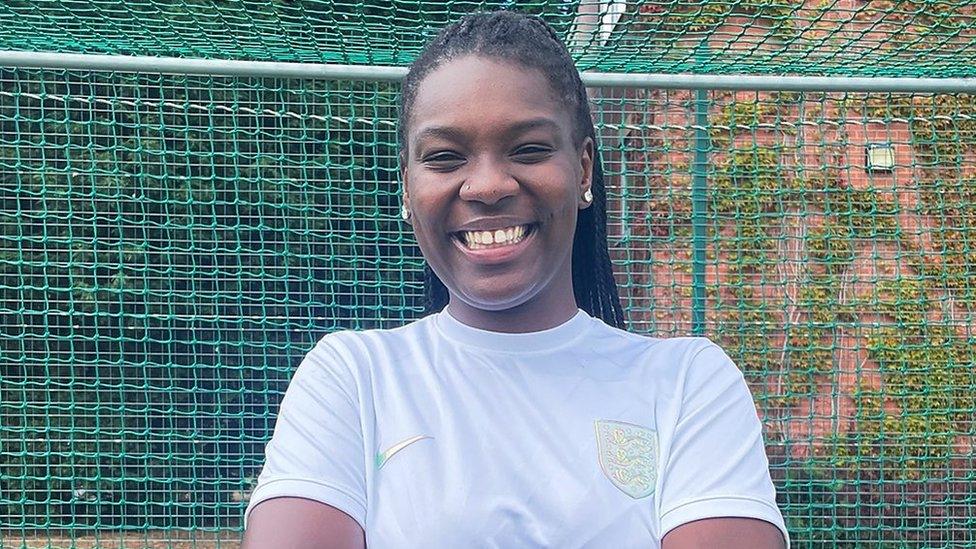WSL: As women's football breaks records, can it also break barriers?
- Published
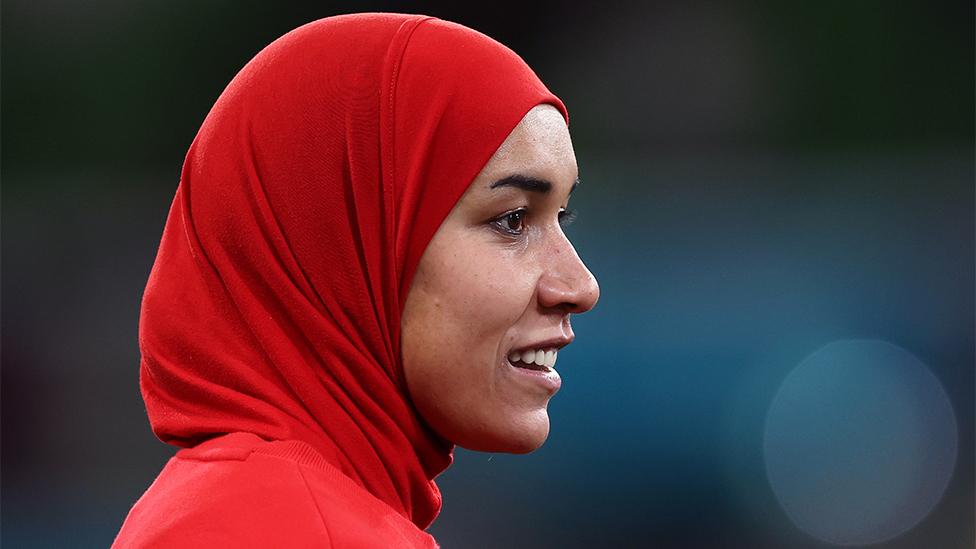
Moroccan player Nouhaila Benzina made history at this year's World Cup when she played in a hijab
Last season was a record-breaking year in the Women's Super League (WSL), followed by a history-making Women's World Cup.
And, based on the last weekend of WSL games, it's looking like this season could be the biggest yet.
Liverpool beat Arsenal in front of a record-breaking crowd at the Emirates Stadium.
And more than half of this weekend's big club games were played in stadiums previously reserved for the men's teams.
It's fair to say interest in the women's game is higher than it's been in years, but there are still challenges for players from certain backgrounds.
Three women involved in the sport tell BBC Asian Network now is the time to capitalise on the sport's popularity to bring in new audiences and fresh talent.
'More opportunities'
Marva Kreel, a presenter for football content creators Copa 90, has played football since she was a young girl.
She says the quality of play in the women's game has rocketed in the past five years, and the opportunities available to young female players are "worlds away" from what she had.
"I'm the same age as most of the current Lionesses squad," says Marva.
"But when I was growing up in terms of the facilities we had, the training levels… they were nowhere near what the boys got."
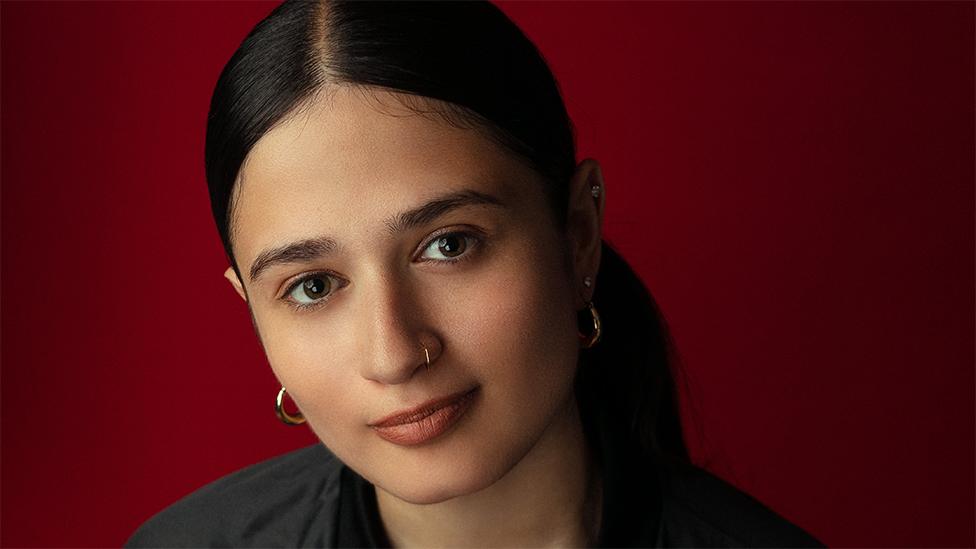
Marva feels changes in football "can have an effect on what happens in society too"
More chances to get involved on the pitch are great for the game, but it's also much easier to get to a match as a spectator.
Freelance football writer Renuka Odedra says seeing new records being set is "great to see" and points to her local club, Leicester City, as an example of growing in-person attendance.
"The women used to play so far away on the outskirts of the city where nobody could get to," says Renuka.
"So you didn't have people wanting to travel and watch the women's side."
But Leicester's promotion to the WSL came with a stadium upgrade, and Renuka says playing at the men's ground "was huge" for the women's squad.
"As soon as they made that move, attendances soared," she says.
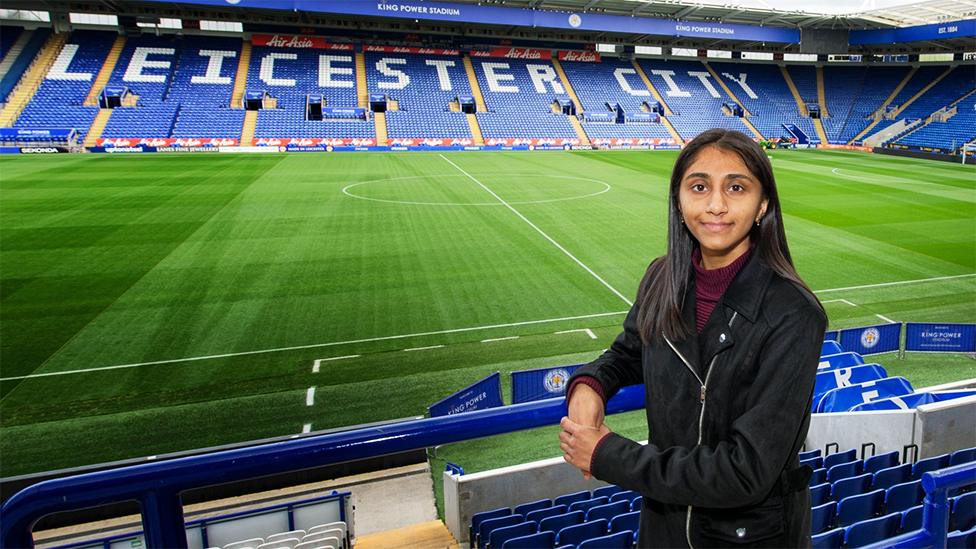
Renuka is happy to see the growth of her local club
One area where some people have observed slower progress is diversity.
There have been questions over the England squad's diversity and, at this year's World Cup, Australia's Sam Kerr was the only player with South Asian heritage.
The lack of South Asian players at the top level of football, compared with the interest at grassroots level, has long been recognised in the men's and women's games.
Marva says racism and sexism are long-term issues facing hopeful players, but there have traditionally been structural barriers too.
She feels the location of academies was a problem in the past, meaning "a lot of diverse talent wasn't being picked up on".
"For so long, they were all very much out of London," she says.
"So if you didn't have a car or transport links, you couldn't go."
Renuka agrees, and suggests perceptions of certain groups fed into this.
"In the past, it would have been easy to go 'South Asian women just don't want to play' or 'it's the culture, the parents don't want them to play'," she says.
"That may be true in places, but not as much as it used to. There's been a huge issue with access to these talent centres."
But both Marva and Renuka feel that is now being addressed.
By the end of this upcoming season, the Football Association (FA) aims to introduce a network of emerging talent centres, external around England.
They say 95% of players will have one of these within an hour of where they live.
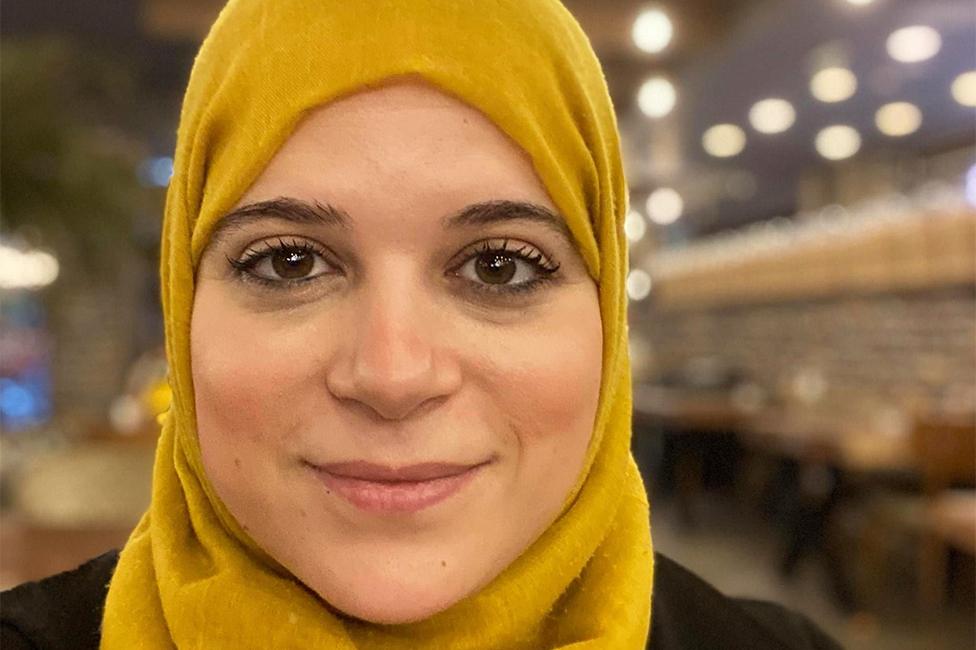
Amna feels it's important to show young women there is a future in the game
Amna Abdullatif from anti-discrimination group The Three Hijabis, says this sort of investment will be the way forward for the sport.
"That's how it keeps improving. You see the quality of talent, the interest and passion is there," she says.
"And it's not just to become players. To get into coaching and mentoring too, it's about how we encourage more women to see that there's a future for them."
Following their win at Euro 2022, England's women wrote an open letter to the government calling for more funding and facilities.
The government then announced £600m to be delivered over two academic years.
"The time for women's football is now," says Amna.
"This is the time for the game to be clear about what the challenges are.
"To create that access, build that talent and ensure those spaces that young girls and women are entering into feel safe.
"That they feel like they belong."


Related topics
- Attribution
- Published30 September 2023
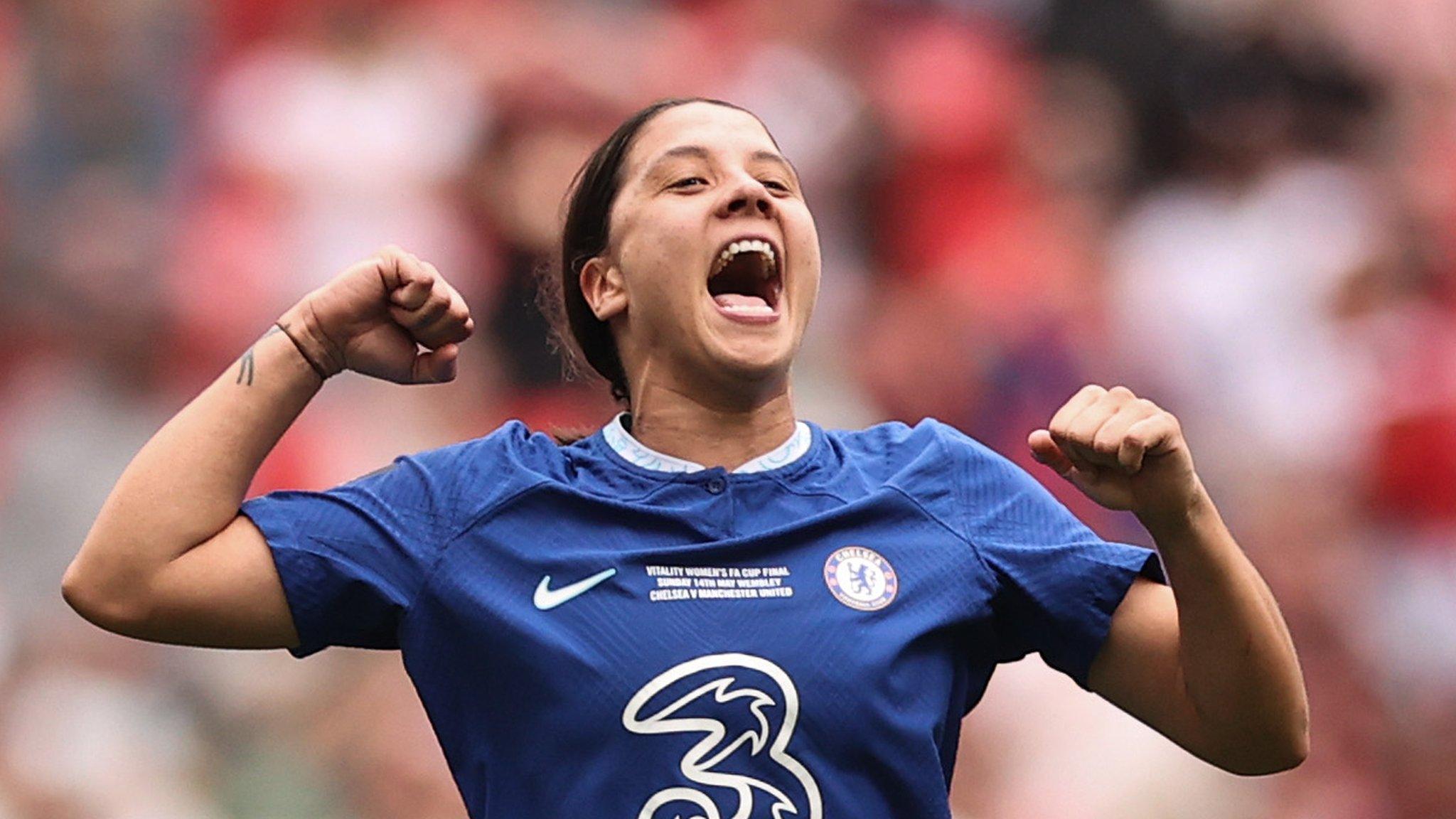
- Attribution
- Published29 September 2023
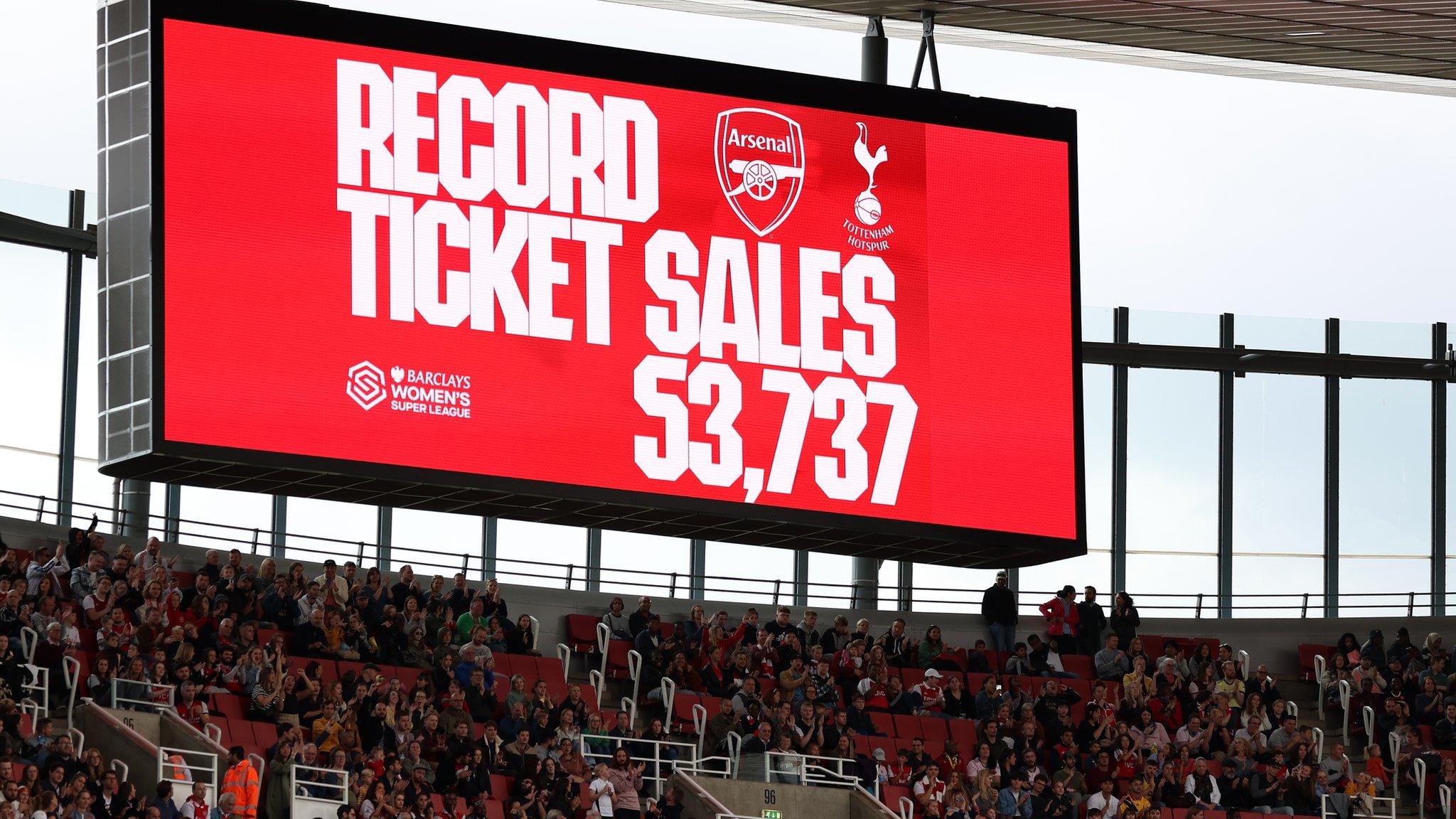
- Published30 July 2023
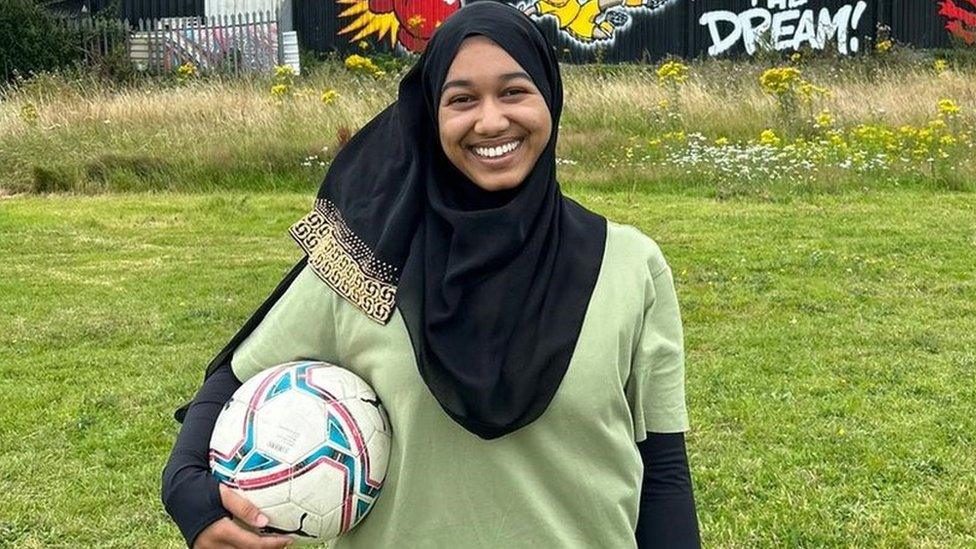
- Published26 July 2023
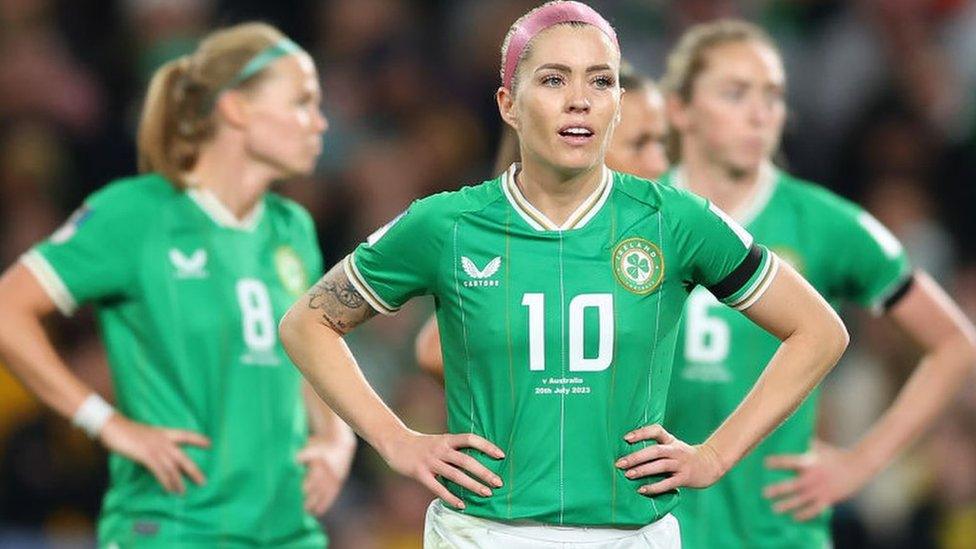
- Published29 July 2022
